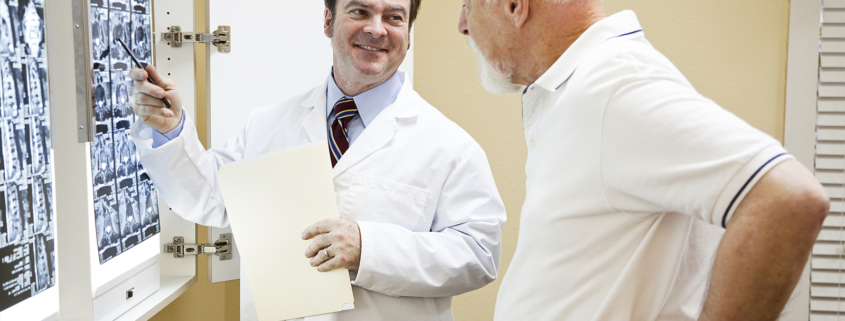What Should You Know Before Your First Radiotherapy Session?
For many, if not most people who receive a diagnosis, the first few days and weeks leading up to the start of their treatment can be difficult to navigate simply because they are filled with unknowns.
An increasing number of cancer types can be treated, and as both diagnosis and radiotherapy technologies become increasingly sophisticated, these treatments are faster, more effective and put less strain on the body than ever before.
One potential expectation of cancer care is that it is a much more intense treatment than it actually is. Here is what you should know about radiotherapy before your first treatment.
It Does Not Hurt
During the treatment planning stages and consultation with your cancer team, we will describe how radiotherapy works, which involves firing beams of radiation in precise locations in the body to target and destroy cancer cells.
It can sound quite aggressive, but in practice, radiotherapy is a painless treatment. There is typically no noise, no discomfort and no pain whilst the radiotherapy beam does its precise work in targeting cancer cells precisely.
All you need to do is relax in our comfortable clinical environment for a few minutes and the treatment will take full effect.
Our team of radiographers will make sure you are comfortable before treatment, and whilst they will not be in the room during the session, you will still be able to talk to them throughout.
Moisturisation Matters
Cancer treatment radiotherapy can cause side effects which your cancer team will warn you about ahead of time; whilst they can vary from person to person and treatment to treatment, most of them are temporary, can be managed and will generally fade once your treatment is over.
One of the best ways to manage many of the symptoms that come with a course of radiotherapy is moisturisation and taking care of sensitive skin.
Make sure to drink plenty of fluids and use more moisturiser than you would normally, especially if you typically have sensitive skin.
One of the more common effects of radiotherapy is dry skin and red patches, particularly when treating a cancer close to the skin. This will not affect your whole body, but just the areas of the skin where radiation passes through.
Your radiographer will look out for you and can provide expert advice on the right types of creams to use, or use special dressings if there is a particularly strong reaction to the treatment to soothe discomfort.
Try not to irritate the skin, so do not shave, use hair removal creams, avoid using perfume directly on it and avoid using heating or cooling pads directly on the area.
Dress In Loose Layers
Alongside more sensitive skin, two other common effects of radiotherapy treatment for cancer are that you might feel more fatigued after treatment, and because of this, you may also feel a little more sensitive to temperatures.
Because of this, it may be best to dress up in loose-fitting clothes with natural fibres, as well as dressing in layers with scarves, loose blouses and jackets so you can keep warm. Make sure to wear soft, comfy socks as well, as a lot of body heat can escape through your feet.
Your cancer team can give you advice and recommendations on the most comfortable clothes to wear whilst undergoing cancer treatment, which can make a huge difference in making each session more comfortable.
Give Yourself Recovery Time At First
Fatigue affects people being treated with radiotherapy in very different ways, and it is essential to listen and be kind to your body, as there may be days when you leave the clinic full of energy and others when you want to go to bed.
If you have travelled internationally for treatment and hope to explore your locale, make sure to account for breaks and times when the best course of action for your treatment is to recuperate in your hotel room.
As the treatment progresses, you will have a better idea of how your body will feel, but give yourself the space and opportunity to listen to your body.
Do not overcommit when it comes to work or making plans that might require a lot of energy; resting and recuperating are vital parts of the treatment and that should never be underestimated.
You Can Ask For Help With Anything
The primary treatment is radiotherapy, but everything else is a vital part of the healing process, from physiotherapy to mental health.
Everyone in your cancer team, from the nurses to the radiographers, is there to help you with anything and answer any questions, so if you have any concerns, thoughts or queries, please let one of them know right away.


